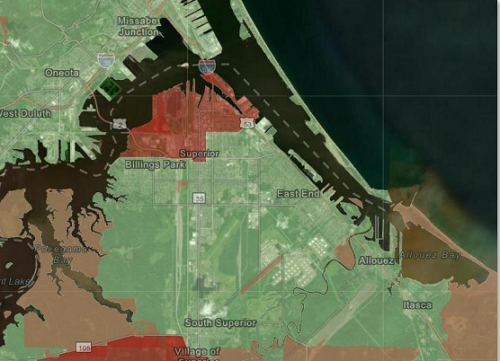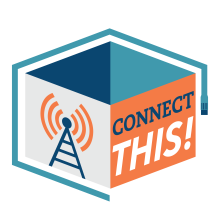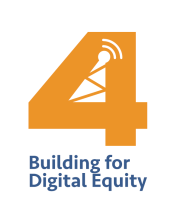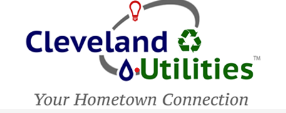
Fast, affordable Internet access for all.


This week on the podcast, Christopher is joined by Karl Bode, a returning guest who has long covered tech and the telecommunications industry. After a short conversation about the continued absence of monopoly abuse in policy conversations about broadband access and affordability today, Karl and Christopher tackle the proposed return to net neutrality announced by Chairwoman Rosenworcel last week.
They talk about how we got here in the first place, including the landmark decision by the Commission in 2015 to largely abdicate responsibility for Internet-related regulatory activities and the states that stepped in to fill the void. They end the show by considering for a bit what it might be like to have an expert federal agency whose activities governed by a strong regulatory framework and the teeth to enforce its mandate to extend fast, affordable, reliable Internet access for all.
This show is 38 minutes long and can be played on this page or via iTunes or the tool of your choice using this feed. You can listen to the interview on this page or visit the Community Broadband Bits page.
Transcript below.
We want your feedback and suggestions for the show-please e-mail us or leave a comment below.
Listen to other episodes here or view all episodes in our index.
Subscribe to the Building Local Power podcast, also from the Institute for Local Self-Reliance, on iTunes or Stitcher to catch more great conversations about local communities, the concentration of corporate power, and how everyday people are taking control.
Thanks to Arne Huseby for the music. The song is Warm Duck Shuffle and is licensed under a Creative Commons Attribution (3.0) license.
Superior, Wisconsin officials have given the green light to the first pilot area for Superior’s new city-owned fiber network. Dubbed Connect Superior, the open access fiber network aims to deliver affordable gigabit access to every resident, community anchor institution and business in the city of nearly 27,000.
On July 5, the Superior City Council voted 8-1 to approve deployment in the project’s first pilot area: a swath of around 821 homes and businesses lodged between Tower Avenue, Belknap Street, and North 21st streets. The vote lets the city now begin issuing RFPs for network construction and negotiate with potential network tenants.
In 2020 the city passed a resolution declaring fiber essential infrastructure. In 2021, the city council voted overwhelmingly to move forward on a deployment master plan developed for the city by EntryPoint Networks. The initial $2.26 million cost of the pilot will be paid for with the help of $5 million from the city’s $17 million allocation from the American Rescue Plan Act funding.

A citywide deployment, should the city pursue it, is expected to cost somewhere around $31 million. The city remains hopeful that much of the cost can be offset by what it hopes will be a 40 percent take rate among local residents and businesses.
The city of Dublin, Ohio has struck a public private partnership with altafiber (formerly known as Cincinnati Bell) to build a new citywide fiber network city leaders hope will finally deliver the kind of affordable, next-generation broadband access Dublin’s 50,000 residents have long been clamoring for.
In 2022 the city issued a request for proposal (RFP) looking for a partner on a citywide network build. At a June 26 meeting, the Dublin city council voted unanimously to select altafiber from a roster of seven potential applicants.
According to the arrangement, construction of the city network is expected to begin in Spring of 2024, with every premise in Dublin passed by a 10 gigabit per second (Gbps) capable network within three years. A select number of undetermined customers are expected to be brought online sometime in the latter part of next year, officials tell ILSR.
A city press release notes that altafiber will invest $35 million in the fiber network, as well as potentially providing the infrastructure necessary to help the city support either public Wi-Fi initiatives or a City Innovation Center. The city says it will pay about $6 million to bury the necessary fiber infrastructure citywide.

Join us Friday, May 26, at 2pm ET for the latest episode of the Connect This! Show. Co-hosts Christopher Mitchell (ILSR) and Travis Carter (USI Fiber) will be joined by regular guests Kim McKinley (UTOPIA Fiber) and Doug Dawson (CCG Consulting) to talk about all the recent broadband news that's fit to print. They'll chat about Gigapower, Anna Gomez' nomination to the FCC, and more.
Email us at broadband@communitynets.org with feedback and ideas for the show.
Subscribe to the show using this feed or find it on the Connect This! page, and watch on LinkedIn, on YouTube Live, on Facebook live, or below.

Bill Callahan, Executive Director of Connect Your Community, joins Christopher Mitchell to talk about some of the history of digital equity and the before-times that led to the formation of the National Digital Inclusion Alliance. We also discuss Cleveland and later NE Ohio more specifically after exploring how Internet access has changed in the area since their landmark report, "AT&T’s digital redlining of Cleveland."
This show is 19 minutes long and can be played on this page or using the podcast app of your choice with this feed.
Transcript below.
We want your feedback and suggestions for the show-please e-mail us or leave a comment below.
Listen to other episodes here or see other podcasts from the Institute for Local Self-Reliance here.
Thanks to Joseph McDade for the music. The song is On the Verge and is used per his Free-Use terms.
The Cleveland, Tennessee city council has approved the creation of the Cleveland Utilities Authority, the first step in allowing the city-owned utility to get into the broadband business. The goal: improve utilities services and provide city residents with faster, cheaper, and more reliable fiber access after years of neglect by often-apathetic regional telecom monopolies.
The plan, approved by the city council with a 7-2 vote (see full video here), paves the way for Cleveland’s city-owned utility, Cleveland Utilities, to begin deployment of a $72 million fiber network. The city’s plan, documented in detail here, is heavily inspired by the successes seen by Chattanooga, Tennessee’s publicly-owned utility, EPB.
Of the initial $72 million investment, $64 million will be funded by public-issued debt, and go towards construction of the network, which Cleveland Utilities states should begin in March of 2024 and be completed in “roughly two to three years” barring complications.

An additional interdivisional loan of $8 Million will fund three years of operation for the new division. The utility’s plan is based on a 30 percent take rate, and aims to become cash flow positive between years 2-3, with all debt paid between years 10 and 12.
Once complete, the network will dramatically upgrade the utility’s energy monitoring and maintenance capabilities and deliver symmetrical fiber at speeds of 1 gigabit per second (Gbps) to local residents, and 10 Gbps to local area businesses.
Last November we noted how New York City had scrapped its longstanding plan to build a promising open access fiber network. Not only did that stark reversal leave many partner ISPs high and dry after years of planning, some local community-run ISPs now say the city is forcing them to remove existing free service to affordable housing developments.
People’s Choice Communications, a small NYC cooperative cobbled together by striking Charter Communications workers, was one of several ISPs left in a lurch by the sudden reversal by the Adams administration.
Adding insult to injury, the ISP is now being told by the city to pull existing service provided for free to marginalized communities in The Bronx.
New York City’s original master plan was poised to be a game changer when it was first introduced back in 2020. The plan not only included a pilot program designed to bring affordable broadband to 450,000 residents of New York City Housing Authority (NYCHA) buildings, but a plan to spend $156 million on a pilot open access fiber network.
The proposal was to showcase the real-world benefits of the open access model, which data suggests results in significantly lower costs and higher quality service thanks to increased competition. If successful, the city would have then considered a bigger $2.1 billion plan to deploy such a network citywide, providing a template for major metropolitan areas nationwide.
New Mayor, Old Playbook
With the election of a new mayor, everything changed.
Dryden, New York, population 14,500, has formally launched the town’s municipal broadband network, becoming the first municipality in the state to provide residents with direct access to affordable, publicly owned fiber.
According to the Dryden Fiber website, the town now offers local access to fiber broadband at three speed tiers: symmetrical 400 Megabits per second (Mbps) for $45 a month, symmetrical 700 Mbps for $75 a month, and symmetrical gigabit broadband service for $90 a month.
The city’s pricing options are a dramatic improvement from the area’s regional cable monopoly Charter Communications, whose Spectrum-branded service has largely monopolized vast swath of upstate New York, leaving consumers saddled with high prices, spotty coverage, slow speeds, and some of the worst customer service of any company in America.
It’s also a dramatic improvement over the sluggish, expensive, dated Frontier DSL that peppers the green rolling hills of Tompkins County. After filing for bankruptcy for failing to upgrade its network to fiber, Frontier has promised improvements–but none of those improvements have found their way to rural upstate New York.
The full cost of Dryden’s municipal network is expected to be $15 million. The pilot area of the project—covering around 50 residences in the southwest part of the town—will be funded by a combination of $2 million in federal COVID-19 disaster relief funding, an Appalachian Regional Commission grant and an as-yet-unspecified number of bonds.
“We were motivated to study and build a municipal broadband system because residents were not satisfied with the options and service provided by commercial ISPs,” Dryden Town Supervisor Jason Leifer told ILSR.
“In 2019 we commissioned a study and found that we could offer the service with newer technology and better pricing over the long term,” Leifer said. “90% of respondents to our household survey supported the project. Dryden was ahead of the curve on the broadband issue because we knew prior to COVID that access to reliable and affordable high-speed internet service is a necessity for our residents.”
Like countless U.S. communities, the pandemic highlighted the essential need for uniform, affordable access, something both Spectrum and Frontier consistency refused to provide, Leifer said.
Kicking off the new year, Georgia Gov. Brian Kemp’s office announced $234 million of the state’s Capital Projects Fund (CPF) will be used to deploy new high-speed Internet infrastructure in the Peach State, courtesy of the American Rescue Plan Act.
The lion’s share of those federal funds, being administered by the state’s broadband office, will be gobbled up by the four national telecom giants operating in the state. The rest of the grant money will be shared by a half dozen electric cooperatives for smaller projects.
In total, the grants were awarded to 12 different applicants to fund 29 different projects across 28 counties.
“When combined with significant capital matches from the awardees, almost $455 million will be invested to serve over 76,000 locations in communities with some of the greatest need for high-speed Internet access,” the Governor’s office said in the Jan. 4 press announcement.
The Big Telecom winners were Comcast, netting almost $67 million for eight projects that looks to extend broadband access to nearly 28,000 locations; $39.3 million for five Spectrum projects that plan to pass nearly 19,000 locations; Windstream raking in $34.8 million for four projects to make high-speed Internet service available to 4,500 locations, and MediaCom hauling in $27.9 million for three projects to reach 8,200 addresses.
The electric cooperative grant awards were: